450 start with D start with D

Terrorism and national security have been in the foreground of the nation’s political landscape since the uncertain times brought on by the attacks of September 11, 2001. This collection of scholarly essays provides a chance to learn from the past by offering an analytic—and sometimes provocative—look at the inseparability of security and history. This work is divided into separate elements depicting security on the national and international levels. "Part One–The US and National Security," focuses on topics such as “Rank-And-File Rednecks: Radicalism and Union Leadership in the West Virginia Mine Wars,” among others. "Part Two–International Terrorism," looks at violence overseas, such as “Beyond Victims and Perpetrators: Women Terrorists and Their Own Stories.”
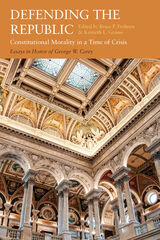

-Todd Sandler, Robert R. and Katheryn A. Dockson Professor of International Relations & Economics, University of Southern California
"Boyer and Bobrow's well-written, data-rich analysis of such pressing issues as development assistance, debt management, UN peacekeeping, and environmental protection makes Defensive Internationalism a highly original and provocative contribution to the study of global governance."
-Yale H. Ferguson, Co-Director, Center for Global Change and Governance, Rutgers University
In this pathbreaking study, authors Davis B. Bobrow and Mark A. Boyer argue for "muted optimism" about the future of international cooperation. Leaders of a growing movement that integrates constructivism into traditional international studies concepts and methods, Bobrow and Boyer analyze four key international issues: development cooperation, debt management, peacekeeping operations, and environmental affairs. Their approach integrates elements of public goods theory, identity theory, new institutionalism, and rational choice. Defensive Internationalism is a well-written, creative and coherent synthesis of ideas that have up to now been considered irreconcilable. It is appropriate for upper-level undergraduate and graduate students in international relations, conflict studies, and political economy, and promises to become a foundational work in its field.
Davis B. Bobrow is Professor of Public and International Affairs and Political Science at the University of Pittsburgh.
Mark A. Boyer is Professor of Political Science at the University of Connecticut.

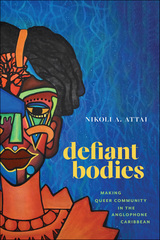
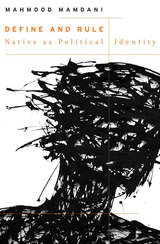
Define and Rule focuses on the turn in late nineteenth-century colonial statecraft when Britain abandoned the attempt to eradicate difference between conqueror and conquered and introduced a new idea of governance, as the definition and management of difference. Mahmood Mamdani explores how lines were drawn between settler and native as distinct political identities, and between natives according to tribe. Out of that colonial experience issued a modern language of pluralism and difference.
A mid-nineteenth-century crisis of empire attracted the attention of British intellectuals and led to a reconception of the colonial mission, and to reforms in India, British Malaya, and the Dutch East Indies. The new politics, inspired by Sir Henry Maine, established that natives were bound by geography and custom, rather than history and law, and made this the basis of administrative practice.
Maine’s theories were later translated into “native administration” in the African colonies. Mamdani takes the case of Sudan to demonstrate how colonial law established tribal identity as the basis for determining access to land and political power, and follows this law’s legacy to contemporary Darfur. He considers the intellectual and political dimensions of African movements toward decolonization by focusing on two key figures: the Nigerian historian Yusuf Bala Usman, who argued for an alternative to colonial historiography, and Tanzania’s first president, Mwalimu Julius Nyerere, who realized that colonialism’s political logic was legal and administrative, not military, and could be dismantled through nonviolent reforms.

Presenting fresh insights on the internal dynamics and global contexts that shaped foreign relations in early modern Japan, Robert I. Hellyer challenges the still largely accepted wisdom that the Tokugawa shogunate, guided by an ideology of seclusion, stifled intercourse with the outside world, especially in the eighteenth and nineteenth centuries.
Examining diplomacy, coastal defense, and foreign trade, this study demonstrates that while the shogunate created the broader framework, foreign relations were actually implemented through cooperative but sometimes competitive relationships with the Satsuma and Tsushima domains, which themselves held largely independent ties with neighboring states. Successive Tokugawa leaders also proactively revised foreign trade, especially with China, taking steps that mirrored the commercial stances of other Asian and Western states.
In the nineteenth century, the system of foreign relations continued to evolve, with Satsuma gaining a greater share of foreign trade and Tsushima assuming more responsibility in coastal defense. The two domains subsequently played key roles in Japan’s transition from using early modern East Asian practices of foreign relations to the national adoption of international relations, especially the recasting of foreign trade and the centralization of foreign relations authority, in the years surrounding the Meiji Restoration of 1868.
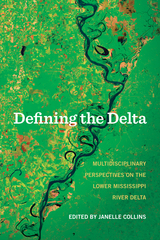
Here are essays examining the Delta’s physical properties, boundaries, and climate from a geologist, archeologist, and environmental historian. The Delta is also viewed through the lens of the social sciences and humanities—historians, folklorists, and others studying the connection between the land and its people, in particular the importance of agriculture and the culture of the area, especially music, literature, and food.
Every turn of the page reveals another way of seeing the seven-state region that is bisected by and dependent on the Mississippi River, suggesting ultimately that there are myriad ways of looking at, and defining, the Delta.
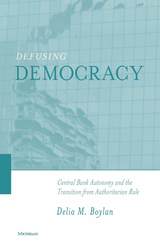
One important outgrowth of this political insulation strategy--and the empirical centerpiece of Boylan's analysis--is the existence of new, highly independent central banks in countries throughout the developing world. This represents a striking transformation, for not only does central bank autonomy remove a key aspect of economic decision making from democratic control; in practice it has also kept many of the would-be expansionist governments that hold power today from overturning the neoliberal policies favored by authoritarian predecessors.
To illustrate these points, Defusing Democracy takes a fresh look at two transitional polities in Latin America--Chile and Mexico--where variation in the proximity of the democratic "threat" correspondingly yielded different levels of central bank autonomy.
Boylan concludes by extending her analysis to institutional contexts beyond Latin America and to insulation strategies other than central bank autonomy. Defusing Democracy will be of interest to anyone--political scientists, economists, and policymakers alike--concerned about the genesis and consolidation of democracy around the globe.
Delia M. Boylan is Assistant Professor, Harris Graduate School of Public Policy Studies, University of Chicago.
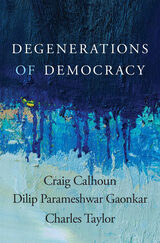
Three leading thinkers analyze the erosion of democracy’s social foundations and call for a movement to reduce inequality, strengthen inclusive solidarity, empower citizens, and reclaim pursuit of the public good.
Democracy is in trouble. Populism is a common scapegoat but not the root cause. More basic are social and economic transformations eroding the foundations of democracy, ruling elites trying to lock in their own privilege, and cultural perversions like making individualistic freedom the enemy of democracy’s other crucial ideals of equality and solidarity. In Degenerations of Democracy three of our most prominent intellectuals investigate democracy gone awry, locate our points of fracture, and suggest paths to democratic renewal.
In Charles Taylor’s phrase, democracy is a process, not an end state. Taylor documents creeping disempowerment of citizens, failures of inclusion, and widespread efforts to suppress democratic participation, and he calls for renewing community. Craig Calhoun explores the impact of disruption, inequality, and transformation in democracy’s social foundations. He reminds us that democracies depend on republican constitutions as well as popular will, and that solidarity and voice must be achieved at large scales as well as locally.
Taylor and Calhoun together examine how ideals like meritocracy and authenticity have become problems for equality and solidarity, the need for stronger articulation of the idea of public good, and the challenges of thinking big without always thinking centralization.
Dilip Parameshwar Gaonkar points out that even well-designed institutions will not integrate everyone, and inequality and precarity make matters worse. He calls for democracies to be prepared for violence and disorder at their margins—and to treat them with justice, not oppression.
The authors call for bold action building on projects like Black Lives Matter and the Green New Deal. Policy is not enough to save democracy; it will take movements.

Historians have long argued that the Great War eradicated German culture from American soil. Degrees of Allegiance examines the experiences of German-Americans living in Missouri during the First World War, evaluating the personal relationships at the local level that shaped their lives and the way that they were affected by national war effort guidelines. Spared from widespread hate crimes, German-Americans in Missouri did not have the same bleak experiences as other German-Americans in the Midwest or across America. But they were still subject to regular charges of disloyalty, sometimes because of conflicts within the German-American community itself.
Degrees of Allegiance updates traditional thinking about the German-American experience during the Great War, taking into account not just the war years but also the history of German settlement and the war’s impact on German-American culture.
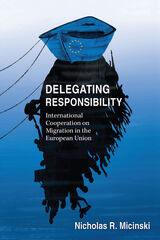
Delegating Responsibility explores the politics of migration in the European Union and explains how the EU responded to the 2015–17 refugee crisis. Based on 86 interviews and fieldwork in Greece and Italy, Nicholas R. Micinski proposes a new theory of international cooperation on international migration. States approach migration policies in many ways—such as coordination, collaboration, subcontracting, and unilateralism—but which policy they choose is based on capacity and on credible partners on the ground. Micinski traces the fifty-year evolution of EU migration management, like border security and asylum policies, and shows how EU officials used “crises” as political leverage to further Europeanize migration governance. In two in-depth case studies, he explains how Italy and Greece responded to the most recent refugee crisis. He concludes with a discussion of policy recommendations regarding contemporary as well as long-term aspirations for migration management in the EU.
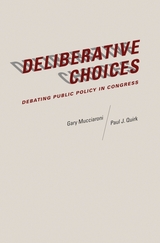
Mucciaroni and Quirk argue that in fashioning the claims they use in debate, legislators make a strategic trade-off between boosting their rhetorical force and ensuring their ability to withstand scrutiny. Using three case studies—welfare reform, repeal of the estate tax, and telecommunications deregulation—the authors show how legislators’ varying responses to such a trade-off shape the issues they focus on, the claims they make, and the information they provide in support of those claims.
Mucciaroni and Quirk conclude that congressional debate generally is only moderately realistic and informed. It often trades in half-truths, omissions, and sometimes even outright falsehoods. Yet some debates are highly informative. Moreover, the authors believe it’s possible to improve congressional deliberation, and they recommend reforms designed to do so.

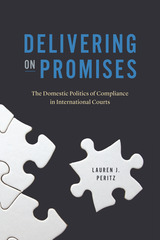
When do international institutions effectively promote economic cooperation among countries and help them resolve conflict? Although the international system lacks any central governing authority, states have created rules, particularly around international economic relations, and empowered international tribunals to enforce those rules. Just how successful are these institutions? In Delivering on Promises Lauren J. Peritz demonstrates that these international courts do indeed deliver results—but they are only effective under certain conditions.
As Peritz shows, states are less likely to comply with international rules and international court decisions when domestic industries have the political ability to obstruct compliance in particular cases. The author evaluates the argument with an extensive empirical analysis that traces the domestic politics of compliance with the decisions of two international economic courts: the World Trade Organization’s dispute settlement mechanism and the Court of Justice of the European Union. At a time when international agreements are under attack, this book sheds light on the complex relationship between domestic politics and international economic cooperation, offering detailed evidence that international economic courts are effective at promoting interstate cooperation.

During World War II, as women stepped in to fill jobs vacated by men in the armed services, the federal government established public child care centers in local communities for the first time. When the government announced plans to withdraw funding and terminate its child care services at the end of the war, women in California protested and lobbied to keep their centers open, even as these services rapidly vanished in other states.
Analyzing the informal networks of cross-class and cross-race reformers, policymakers, and educators, Demanding Child Care: Women's Activism and the Politics of Welfare, 1940–1971 traces the rapidly changing alliances among these groups. During the early stages of the childcare movement, feminists, Communists, and labor activists banded together, only to have these alliances dissolve by the 1950s as the movement welcomed new leadership composed of working-class mothers and early childhood educators. In the 1960s, when federal policymakers earmarked child care funds for children of women on welfare and children described as culturally deprived, it expanded child care services available to these groups but eventually eliminated public child care for the working poor.
Deftly exploring the possibilities for partnership as well as the limitations among these key parties, Fousekis helps to explain the barriers to a publically funded comprehensive child care program in the United States.

Shaun Bowler and Todd Donovan present a searching and original examination of how voters make decisions in direct referenda. The authors ask if voters have some information about the issue easily at their disposal and if they make choices that seem sensible given their interests and the information they have. Looking at the way voters respond to different kinds of questions, the authors suggest that while direct democracy has its failings, the flaws do not necessarily lie with citizens being "duped," nor with voters approving propositions they do not want or do not understand at some basic level.
As cynicism about government has increased many have sought to take policy questions out of the hands of elected officials and put the questions directly before the voters for decision. And yet many are skeptical about the ability of voters to make intelligent decisions about complex policy issues. This important book demonstrates that voters are capable of responding thoughtfully to referenda questions.
This book will appeal to students of contemporary American politics and electoral politics.
Shaun Bowler is Associate Professor of Political Science, University of California at Irvine. Todd Donovan is Associate Professor of Political Science, Western Washington University.

Featuring chapters on Bolivia, Colombia, Ecuador, Guatemala, and Mexico, the contributors to Demanding Justice and Security include both leading researchers and community activists. From Kichwa women in Ecuador lobbying for the inclusion of specific clauses in the national constitution that guarantee their rights to equality and protection within indigenous community law, to Me’phaa women from Guerrero, Mexico, battling to secure justice within the Inter-American Court of Human Rights for violations committed in the context of militarizing their home state, this book is a must-have for anyone who wants to understand the struggle of indigenous women in Latin America.

How does France reconcile the modern movement toward pluralism and decentralization with a strong central governing power? One of the country's most distinguished political historians offers a radical new interpretation of the development of democracy in France and the relationship between government and its citizens.
Since the publication of Tocqueville's Ancient Regime and the Revolution, French political structures have been viewed as the pure expression of a native Jacobinism, itself the continuation of an old absolutism. This interpretation has served as both a diagnosis of and an excuse for the inability to accept pluralism and decentralization as norms of a modern democracy, as evidenced in such policies as the persistence of the role of prefects and the ban on headscarves in schools.
Pierre Rosanvallon, by contrast, argues that the French have cherished and demonized Jacobinism at the same time; their hearts followed Robespierre, but their heads turned toward Benjamin Constant. The Demands of Liberty traces the long history of resistance to Jacobinism, including the creation of associations and unions and the implementation of elements of decentralization. Behind the ideological triumph of the state lies the conflicting creation of an active civil society.
In exploring these tensions, Rosanvallon takes the debate far beyond traditional views of liberalism versus republicanism and offers an innovative analysis of why the French system has worked despite Jacobinism.

In nine insightful chapters, this volume's contributors outline each nation's demilitarization choices and how they were made. They investigate factors such as military defeat, border security risks, economic pressures, and the development of strong peace cultures among citizenry. Also at center stage is the influence of the United States, which fills a paradoxical role as both an enabler of demilitarization and a leader in steadily accelerating militarization.
Bookended by Peter N. Stearns' thought-provoking historical introduction and forward-looking conclusion, the chapters in this volume explore what true demilitarization means and how it impacts a society at all levels, military and civilian, political and private. The examples chosen reveal that successful demilitarization must go beyond mere troop demobilization or arms reduction to generate significant political and even psychological shifts in the culture at large. Exemplifying the political difficulties of demilitarization in both its failures and successes, Demilitarization in the Contemporary World provides a possible roadmap for future policies and practices.
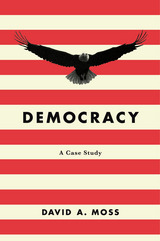
A Foreign Affairs Best Book of the Year
“This absolutely splendid book is a triumph on every level. A first-rate history of the United States, it is beautifully written, deeply researched, and filled with entertaining stories. For anyone who wants to see our democracy flourish, this is the book to read.”
—Doris Kearns Goodwin
To all who say our democracy is broken—riven by partisanship, undermined by extremism, corrupted by wealth—history offers hope. Democracy’s nineteen cases, honed in David Moss’s popular course at Harvard and taught at the Library of Congress, in state capitols, and at hundreds of high schools across the country, take us from Alexander Hamilton’s debates in the run up to the Constitutional Convention to Citizens United. Each one presents a pivotal moment in U.S. history and raises questions facing key decision makers at the time: Should the delegates support Madison’s proposal for a congressional veto over state laws? Should Lincoln resupply Fort Sumter? Should Florida lawmakers approve or reject the Equal Rights Amendment? Should corporations have a right to free speech? Moss invites us to engage in the passionate debates that are crucial to a healthy society.
“Engagingly written, well researched, rich in content and context…Moss believes that fierce political conflicts can be constructive if they are mediated by shared ideals.”
—Glenn C. Altschuler, Huffington Post
“Gives us the facts of key controversies in our history—from the adoption of the constitution to Citizens United—and invites readers to decide for themselves…A valuable resource for civic education.”
—Michael Sandel, author of Justice

This book explores how democracy has developed in Chile since the end of the military dictatorship in 1990. It brings together an examination of international influences on the country's political development with empirically based analyses of Chilean political institutions and change. Chapters one and two examine international aspects of the 1973 coup and how these influenced the development of politics inside Chile. Chapters three, four, and five provide empirical analyses of the 1989, 1993, and 1999/2000 presidential elections, respectively. Chapter six investigates how the Pinochet factor influenced developments after 1990 and the Chilean reaction to Pinochet's arrest in London in 1998. Chapter seven assesses changes in the Chilean party system and links these to similar processes elsewhere. The final chapter examines the paradox that despite economic and social advances, opinion polls report a low level of attachment to democracy and very low levels of confidence in political institutions.
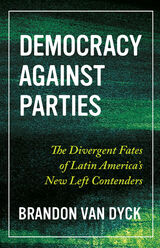
Around the world, established parties are weakening, and new parties are failing to take root. In many cases, outsiders have risen and filled the void, posing a threat to democracy. Why do most new parties fail? Under what conditions do they survive and become long-term electoral fixtures? Brandon Van Dyck investigates these questions in the context of the contemporary Latin American left. He argues that stable parties are not an outgrowth of democracy. On the contrary, contemporary democracy impedes successful party building. To construct a durable party, elites must invest time and labor, and they must share power with activists. Because today’s elites have access to party substitutes like mass media, they can win votes without making such sacrifices in time, labor, and autonomy. Only under conditions of soft authoritarianism do office-seeking elites have a strong electoral incentive to invest in party building. Van Dyck illustrates this argument through a comparative analysis of four new left parties in Latin America: two that collapsed and two that survived.
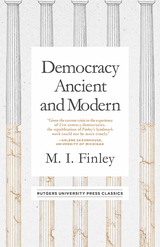
This classic study of democratic principles is thus now more relevant than ever. A renowned historian of antiquity and political philosophy, Sir M.I. Finley offers a comparative analysis of Greek and modern conceptions of democracy. As he puts the ancient Greeks in dialogue with their contemporary counterparts, Finley tackles some of the most pressing issues of our day, including public apathy, partisanship, consensus politics, distrust of professional politicians, and the limits of free speech.
Including three lectures that Finley delivered at Rutgers University, plus two additional essays that further illuminate his thinking, Democracy Ancient and Modern explores the dramatic differences between the close-knit civil society of the ancient Greeks and our own atomized mass societies. By mapping out democracy’s past and its present manifestations, this book helps us plot a course for democracy’s future.
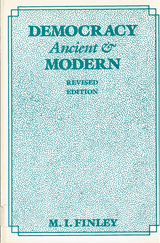
The two new essays, "Athenian Dialogues" and "Censorship in Classical Antiquity" combine with "Leaders and Followers," "Democracy, Consensus, and the National Interest," "Socrates and After" to make this book an unusual inquiry. Few contemporary writers are able to bring to the subject the depth of learning and the persuasive power of language that Sir M. I. Finley brings.
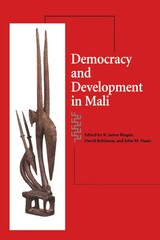
During the past twenty-five years, the scholarly research and applied development work of Michigan State University faculty and students in Mali represents the most significant combined, long-term, and continuing contribution of any group of university faculty in the United States or Europe to the study of Malian society, economy, and politics. The applied nature of much of this work has resulted in a significant number of working papers, reports, and conference presentations. This volume represents a coherent and connected set of essays from one American university with a widely known and highly respected role in African development. While the essays identify and review Mali's unique historical and contemporary path to democracy and development, they also contribute to the advancement of theoretical knowledge about African development.
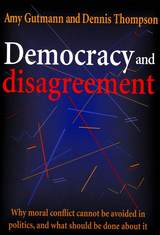
The din and deadlock of public life in America—where insults are traded, slogans proclaimed, and self-serving deals made and unmade—reveal the deep disagreement that pervades our democracy. The disagreement is not only political but also moral, as citizens and their representatives increasingly take extreme and intransigent positions. A better kind of public discussion is needed, and Amy Gutmann and Dennis Thompson provide an eloquent argument for “deliberative democracy” today. They develop a principled framework for opponents to come together on moral and political issues.
Gutmann and Thompson show how a deliberative democracy can address some of our most difficult controversies—from abortion and affirmative action to health care and welfare—and can allow diverse groups separated by class, race, religion, and gender to reason together. Their work goes beyond that of most political theorists and social scientists by exploring both the principles for reasonable argument and their application to actual cases. Not only do the authors suggest how deliberative democracy can work, they also show why improving our collective capacity for moral argument is better than referring all disagreements to procedural politics or judicial institutions. Democracy and Disagreement presents a compelling approach to how we might resolve some of our most trying moral disagreements and live with those that will inevitably persist, on terms that all of us can respect.
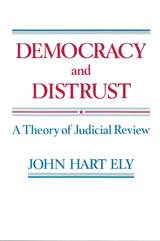
This powerfully argued appraisal of judicial review may change the face of American law. Written for layman and scholar alike, the book addresses one of the most important issues facing Americans today: within what guidelines shall the Supreme Court apply the strictures of the Constitution to the complexities of modern life?
Until now legal experts have proposed two basic approaches to the Constitution. The first, “interpretivism,” maintains that we should stick as closely as possible to what is explicit in the document itself. The second, predominant in recent academic theorizing, argues that the courts should be guided by what they see as the fundamental values of American society. John Hart Ely demonstrates that both of these approaches are inherently incomplete and inadequate. Democracy and Distrust sets forth a new and persuasive basis for determining the role of the Supreme Court today.
Ely’s proposal is centered on the view that the Court should devote itself to assuring majority governance while protecting minority rights. “The Constitution,” he writes, “has proceeded from the sensible assumption that an effective majority will not unreasonably threaten its own rights, and has sought to assure that such a majority not systematically treat others less well than it treats itself. It has done so by structuring decision processes at all levels in an attempt to ensure, first, that everyone’s interests will be represented when decisions are made, and second, that the application of those decisions will not be manipulated so as to reintroduce in practice the sort of discrimination that is impermissible in theory.”
Thus, Ely’s emphasis is on the procedural side of due process, on the preservation of governmental structure rather than on the recognition of elusive social values. At the same time, his approach is free of interpretivism’s rigidity because it is fully responsive to the changing wishes of a popular majority. Consequently, his book will have a profound impact on legal opinion at all levels—from experts in constitutional law, to lawyers with general practices, to concerned citizens watching the bewildering changes in American law.
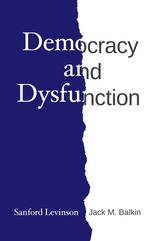
Democracy and Dysfunction brings together two of the leading constitutional law scholars of our time, Sanford Levinson and Jack M. Balkin, in an urgently needed conversation that seeks to uncover the underlying causes of our current crisis and their meaning for American democracy. In a series of letters exchanged over a period of two years, Levinson and Balkin travel—along with the rest of the country—through the convulsions of the 2016 election and Trump’s first year in office. They disagree about the scope of the crisis and the remedy required. Levinson believes that our Constitution is fundamentally defective and argues for a new constitutional convention, while Balkin, who believes we are suffering from constitutional rot, argues that there are less radical solutions. As it becomes dangerously clear that Americans—and the world—will be living with the consequences of this pivotal period for many years to come, it is imperative that we understand how we got here—and how we might forestall the next demagogue who will seek to beguile the American public.
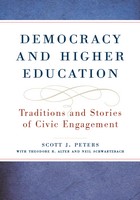
How are we to understand the nature and value of higher education's public purposes, mission, and work in a democratic society? How do-and how should-academic professionals contribute to and participate in civic life in their practices as scholars, scientists, and educators?
Democracy and Higher Education addresses these questions by combining an examination of several normative traditions of civic engagement in American higher education with the presentation and interpretation of a dozen oral history profiles of contemporary practitioners. In his analysis of these profiles, Scott Peters reveals and interprets a democratic-minded civic professionalism that includes and interweaves expert, social critic, responsive service, and proactive leadership roles.
Democracy and Higher Education contributes to a new line of research on the critically important task of strengthening and defending higher education's positive roles in and for a democratic society.

Following costly U.S. engagement in two wars in the Middle East, questions about the appropriateness of American military interventions dominate foreign policy debates. Is an interventionist foreign policy compatible with the American constitutional tradition?
This book examines critic Irving Babbitt’s (1865–1933) unique contribution to understanding the quality of foreign policy leadership in a democracy. Babbitt explored how a democratic nation’s foreign policy is a product of the moral and cultural tendencies of the nation’s leaders, arguing that the substitution of expansive, sentimental Romanticism for the religious and ethical traditions of the West would lead to imperialism.
The United States’ move away from the restraint and order of sound constitutionalism to involve itself in the affairs of other nations will inevitably cause a clash with the “civilizational” regions that have emerged in recent decades. Democracy and Imperialism uses the question of soul types to address issues of foreign policy leadership, and discusses the leadership qualities that are necessary for sound foreign policy.

The essays in this volume offer both theoretical insights into the context and implications of Lijphart's ideas and empirical exploration of the ideas. Two chapters by Thomas Koelble and Andrew Reynolds examine and apply Lijphart's insights to South Africa, while another study by Jack Nagel explores the fascinating institutional changes taking place in New Zealand. Essays by Bernard Grofman and Rein Taagepera examine Lijphart's work from a theoretical perspective and place Lijphart's work in the wider neo-institutionalist school of thought. Milton Esman applies the principle of power-sharing to mobilized communities, not only in democratic societies but also to those which are governed by authoritarian rule. Bingham Powell offers an empirical approach to the crucial question of the connection between political institutions and responsiveness of policy-makers. Markus M. L. Crepaz and Vicki Birchfield argue that in this age of globalization, countries with consensual political institutions will not only systematically refract the pressures of globalization but will be able to absorb the domestic consequences of globalization more successfully than majoritarian countries. Finally, Arend Lijphart responds to the arguments made in these essays, extending and adding novel concepts and insights to his conceptual framework.
The book will be of interest to political scientists, lawyers, and sociologists who study institutions, the impact of electoral systems, and constitutional design. In addition, those who study "globalization" will be attracted by the relevance of domestic political institutions and their refractory effects as the tides of globalization wash against the domestic shores.
Markus M. L. Crepaz is Associate Professor of Political Science, University of Georgia. Thomas A. Koelble is Associate Professor of Political Science, University of Miami. David Wilsford is President and Professor, the Institute for American Universities.

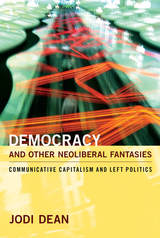
Dean’s critique ranges from her argument that the term democracy has become a meaningless cipher invoked by the left and right alike to an analysis of the fantasy of free trade underlying neoliberalism, and from an examination of new theories of sovereignty advanced by politicians and left academics to a look at the changing meanings of “evil” in the speeches of U.S. presidents since the mid-twentieth century. She emphasizes the futility of a politics enacted by individuals determined not to offend anyone, and she examines questions of truth, knowledge, and power in relation to 9/11 conspiracy theories. Dean insists that any reestablishment of a vital and purposeful left politics will require shedding the mantle of victimization, confronting the marriage of neoliberalism and democracy, and mobilizing different terms to represent political strategies and goals.

In these two essays, one of America’s most honored writers fastens on the interrelation of American democracy and poetry and the concept of selfhood vital to each. “I really don’t want to make a noise like a pundit,” Mr. Warren declares, “What I do want to do is to return us—and myself most of all—to a scrutiny of our own experience of our own world.” Indeed, Democracy and Poetry offers one of the most pertinent and strongly personal meditations on our condition to have appeared in recent letters.
Our native “poetry,” that is, literature and art, in general, is a social document, is “diagnostic,” and has often been a corrosive criticism of our democracy, Mr. Warren argues. Persuasively, and movingly, he shows that all of “art” and all that goes into the making of democracy require a free and responsible self. Yet the American experience has been one of the decay of the notion of self. Our astounding success jeopardized what we promised to create—the free man. For a century and a half the conception of the self has been dwindling, separating itself from traditional values, moral identity, and a secure relation with community. Lonely heroes in a bankrupt civilization, then protest, despair, aimlessness, and violence, have marked our literature.
The anguish of Robert Penn Warren’s own poetic vision of art and democracy is soothed only by his belief that poetry—the making of art can nourish and at least do something toward the rescue of democracy; he shows how art can be- come a healer, can be “therapeutic.” In the face of disintegrative forces set loose in a business and technetronic society, it is poetry that affirms the notion of the self. It is a model of the organized self, an emblem of the struggle for the achieving self, and of the self in a community. More and more as our modern technetronic society races toward the abolition of the self, and diverges from a culture created to enhance the notion of selfhood, poetry becomes indispensable.
Compelling, resonant, memorable, Democracy and Poetry is a major testament not only to the vitality of poetry, but also to a faith in democracy.

Raby argues passionately that the way forward for progressives is not the dogmatic formulae of the Old Left, nor in the spontaneous autonomism of Antonio Negri. Instead, it is to be found in broad popular movements with bold leadership. Examining key leaders, including Hugo Chávez and the Sandinistas in Nicaragua, Raby shows that it is more necessary than ever to take power, peacefully where possible, but in all cases with the strength that comes from popular unity backed by force where necessary. In this way it is possible to build democratic power, which may or may not be socialist depending on one's definition, but which represent the real anti-capitalist alternative for the twenty-first century.
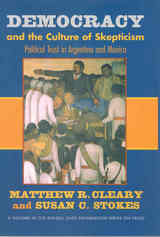
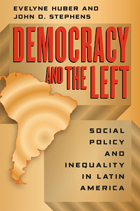
Although inequality in Latin America ranks among the worst in the world, it has notably declined over the last decade, offset by improvements in health care and education, enhanced programs for social assistance, and increases in the minimum wage.
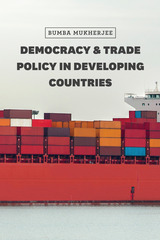
Mukherjee offers the first comprehensive cross-national framework for identifying the specific economic conditions that influence trade policy in developing countries. Laying out the causes of variation in trade policy in four developing or recently developed countries—Brazil, India, Indonesia, and South Africa—he argues persuasively that changing political interactions among parties, party leaders, and the labor market are often key to trade policy outcome. For instance, if workers are in a position to benefit from opening up to trade, party leaders in turn support trade reforms by decreasing tariffs and other trade barriers.
At a time when discussions about the stability of new democracies are at the forefront, Democracy and Trade Policy in Developing Countries provides invaluable insight into the conditions needed for a democracy to survive in the developing world in the context of globalization.

Belarus is widely regarded as the most authoritarian state in the region, while Ukraine is witnessing a slow, if often troubled, democratic consolidation. Each state presents a different set of challenges to outside agencies. As Pospieszna shows, Poland is uniquely positioned to offer effective counsel on the transition to democracy. With similarities of language and culture, and a shared history, combined with strong civic activism and success within the European Union, Poland’s regional policies have successfully combined its need for security and a motivation to spread democracy as primary concerns. Pospieszna details the founding, internal workings, goals, and methods of Poland’s aid programs. She then compares the relative degrees of success of each in Belarus and Ukraine and documents the work yet to be done.
As her theoretical basis, Pospieszna analyzes current thinking on the methods and effectiveness of NGOs in transitions to democracy, particularly U.S.- and European-led aid efforts. She then views the applicability of these methods to the case of Poland and its aid recipients. Overwhelmingly, Pospieszna finds the greatest success in developmental programs targeting civil society—workers, intellectuals, teachers, students, and other NGO actors.
Through extensive interviews with government administrators and NGO workers in Poland and the United States, coupled with archival research, Pospieszna assembles an original perspective on the mitigation of the ‘postcommunist divide’. Her work will serve as a model for students and scholars of states in transition, and it provides an overview of both successful and unsuccessful strategies employed by NGOs in democracy assistance.
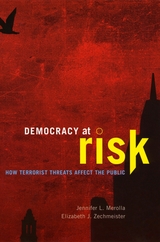
How do threats of terrorism affect the opinions of citizens? Speculation abounds, but until now no one had marshaled hard evidence to explain the complexities of this relationship. Drawing on data from surveys and original experiments they conducted in the United States and Mexico, Jennifer Merolla and Elizabeth Zechmeister demonstrate how our strategies for coping with terrorist threats significantly influence our attitudes toward fellow citizens, political leaders, and foreign nations.
The authors reveal, for example, that some people try to restore a sense of order and control through increased wariness of others—especially of those who exist outside the societal mainstream. Additionally, voters under threat tend to prize “strong leadership” more highly than partisan affiliation, making some politicians seem more charismatic than they otherwise would. The authors show that a wary public will sometimes continue to empower such leaders after they have been elected, giving them greater authority even at the expense of institutional checks and balances. Having demonstrated that a climate of terrorist threat also increases support for restrictive laws at home and engagement against terrorists abroad, Merolla and Zechmeister conclude that our responses to such threats can put democracy at risk.
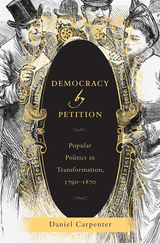
Winner of the James P. Hanlan Book Award
Winner of the J. David Greenstone Book Prize
Winner of the S. M. Lipset Best Book Award
This pioneering work of political history recovers the central and largely forgotten role that petitioning played in the formative years of North American democracy.
Known as the age of democracy, the nineteenth century witnessed the extension of the franchise and the rise of party politics. As Daniel Carpenter shows, however, democracy in America emerged not merely through elections and parties, but through the transformation of an ancient political tool: the petition. A statement of grievance accompanied by a list of signatures, the petition afforded women and men excluded from formal politics the chance to make their voices heard and to reshape the landscape of political possibility.
Democracy by Petition traces the explosion and expansion of petitioning across the North American continent. Indigenous tribes in Canada, free Blacks from Boston to the British West Indies, Irish canal workers in Indiana, and Hispanic settlers in territorial New Mexico all used petitions to make claims on those in power. Petitions facilitated the extension of suffrage, the decline of feudal land tenure, and advances in liberty for women, African Americans, and Indigenous peoples. Even where petitioners failed in their immediate aims, their campaigns advanced democracy by setting agendas, recruiting people into political causes, and fostering aspirations of equality. Far more than periodic elections, petitions provided an everyday current of communication between officeholders and the people.
The coming of democracy in America owes much to the unprecedented energy with which the petition was employed in the antebellum period. By uncovering this neglected yet vital strand of nineteenth-century life, Democracy by Petition will forever change how we understand our political history.
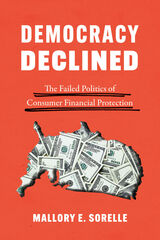
In Democracy Declined, Mallory E. SoRelle argues that the failure of federal policy makers to curb risky practices can be explained by the evolution of consumer finance policies aimed at encouraging easy credit in part by foregoing more stringent regulation. Furthermore, SoRelle explains how angry borrowers’ experiences with these policies teach them to focus their attention primarily on banks and lenders instead of demanding that lawmakers address predatory behavior. As a result, advocacy groups have been mostly unsuccessful in mobilizing borrowers in support of stronger consumer financial protections. The absence of safeguards on consumer financing is particularly dangerous because the consequences extend well beyond harm to individuals—they threaten the stability of entire economies. SoRelle identifies pathways to mitigate these potentially disastrous consequences through greater public participation.
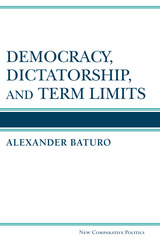
A national constitution or other statute typically specifies restrictions on executive power, often including a limit to the number of terms the chief executive may hold office. In recent decades, however, some presidents of newly established democracies have extended their tenure by various semilegal means, thereby raising the specter—and in some cases creating the reality—of dictatorship.
Alexander Baturo tracks adherence to and defiance of presidential term limits in all types of regimes (not only democratic regimes) around the world since 1960. Drawing on original data collection and fieldwork to investigate the factors that encourage playing by or manipulating the rules, he asks what is at stake for the chief executive if he relinquishes office. Baturo finds that the income-generating capacity of political office in states where rent-seeking is prevalent, as well as concerns over future immunity and status, determines whether or not an executive attempts to retain power beyond the mandated period. Democracy, Dictatorship, and Term Limits will appeal to scholars of democratization and executive power and also to political theorists.
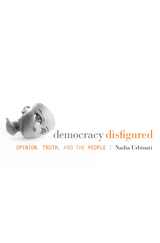
In Democracy Disfigured, Nadia Urbinati diagnoses the ills that beset the body politic in an age of hyper-partisanship and media monopolies and offers a spirited defense of the messy compromises and contentious outcomes that define democracy.
Urbinati identifies three types of democratic disfiguration: the unpolitical, the populist, and the plebiscitarian. Each undermines a crucial division that a well-functioning democracy must preserve: the wall separating the free forum of public opinion from the governmental institutions that enact the will of the people. Unpolitical democracy delegitimizes political opinion in favor of expertise. Populist democracy radically polarizes the public forum in which opinion is debated. And plebiscitary democracy overvalues the aesthetic and nonrational aspects of opinion. For Urbinati, democracy entails a permanent struggle to make visible the issues that citizens deem central to their lives. Opinion is thus a form of action as important as the mechanisms that organize votes and mobilize decisions.
Urbinati focuses less on the overt enemies of democracy than on those who pose as its friends: technocrats wedded to procedure, demagogues who make glib appeals to “the people,” and media operatives who, given their preference, would turn governance into a spectator sport and citizens into fans of opposing teams.
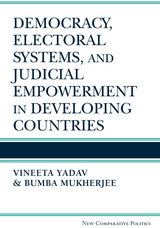
Moving next to de facto independence, Yadav and Mukherjee bring together data from 103 democracies in the developing world, complemented by case studies of Brazil, India, and Indonesia. Honing in on the effects of electoral institutions, the authors find that, when faced with short time horizons, governments that operate in personal vote electoral systems are likely to increase de facto judicial independence whereas governments in party-centered systems are likely to reduce it.
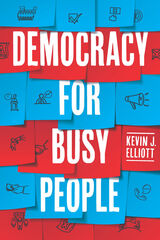
How do we make democracy more equal? Although in theory, all citizens in a democracy have the right to participate in politics, time-consuming forms of participation often advantage some groups over others. Where some citizens may have time to wait in long lines to vote, to volunteer for a campaign, to attend community board meetings, or to stay up to date on national, state, and local news, other citizens struggle to do the same. Since not all people have the time or inclination to devote substantial energy to politics, certain forms of participation exacerbate existing inequalities.
Democracy for Busy People takes up the very real challenge of how to build a democracy that empowers people with limited time for politics. While many plans for democratic renewal emphasize demanding forms of political participation and daunting ideals of democratic citizenship, political theorist Kevin J. Elliott proposes a fundamentally different approach. He focuses instead on making democratic citizenship undemanding so that even busy people can be politically included. This approach emphasizes the core institutions of electoral democracy, such as political parties, against deliberative reforms and sortition. Timely and action-focused, Democracy for Busy People is necessary reading.
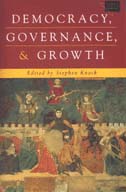
The difference between developmental success and failure in this view has little to do with natural resource availability, climate, aid, or developed nations' policies. Rather, it is largely a function of whether incentives within a given society steer wealth-maximizing individuals toward producing new wealth or toward diverting it from others. The chapters, seminal essays written by Mancur Olson and his IRIS Center colleagues, provide theoretical and/or empirical underpinnings for the emerging consensus that differences in the way governments and societies are organized have enormous implications for the structure of incentives faced by politicians, bureaucrats, investors, and workers, which in turn determines the level of a nation's material well-being.
Overall this volume applies tools and concepts from the "New Institutional Economics" to some of the major issues in economic development. It will be of interest to scholars and students of various disciplines--including political science, law, and sociology as well as economics--interested in the determinants of economic development and global economic change. The book will also be of interest to many aid practitioners, particularly those working in anticorruption and public sector reform issues.
Stephen Knack is Senior Research Economist, Development Research Group, the World Bank.
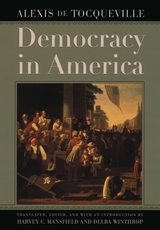
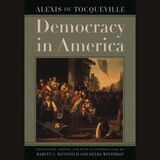
This is an auto-narrated audiobook edition of this book.

What’s the solution? More democracy. More opportunities for citizens to shape what their government does. To repair our democracy, Page and Gilens argue, we must change the way we choose candidates and conduct our elections, reform our governing institutions, and curb the power of money in politics. By doing so, we can reduce polarization and gridlock, address pressing challenges, and enact policies that truly reflect the interests of average Americans.
Updated with new information, this book lays out a set of proposals that would boost citizen participation, curb the power of money, and democratize the House and Senate.

How did we get here? Through decades of dysfunctional government. In Democracy in America? veteran political observers Benjamin I. Page and Martin Gilens marshal an unprecedented array of evidence to show that while other countries have responded to a rapidly changing economy by helping people who’ve been left behind, the United States has failed to do so. Instead, we have actually exacerbated inequality, enriching corporations and the wealthy while leaving ordinary citizens to fend for themselves.
What’s the solution? More democracy. More opportunity for citizens to shape what their government does. To repair our democracy, Page and Gilens argue, we must change the way we choose candidates and conduct our elections, reform our governing institutions, and curb the power of money in politics. By doing so, we can reduce polarization and gridlock, address pressing challenges, and enact policies that truly reflect the interests of average Americans.
This book presents a damning indictment. But the situation is far from hopeless. With increased democratic participation as their guide, Page and Gilens lay out a set of proposals that would boost citizen participation, curb the power of money, and democratize the House and Senate. The only certainty is that inaction is not an option. Now is the time to act to restore and extend American democracy.
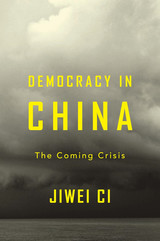
A respected Chinese political philosopher calls for the Communist Party to take the lead in moving China along the path to democracy before it is too late.
With Xi Jinping potentially set as president for life, China’s move toward political democracy may appear stalled. But Jiwei Ci argues that four decades of reform have created a mentality in the Chinese people that is just waiting for the political system to catch up, resulting in a disjunction between popular expectations and political realities. The inherent tensions in a largely democratic society without a democratic political system will trigger an unprecedented crisis of legitimacy, forcing the Communist Party to act or die.
Two crises loom for the government. First is the waning of the Communist Party’s revolutionary legacy, which the party itself sees as a grave threat. Second is the fragility of the next leadership transition. No amount of economic success will compensate for the party’s legitimacy deficit when the time comes. The only effective response, Ci argues, will be an orderly transition to democracy. To that end, the Chinese government needs to start priming its citizens for democracy, preparing them for new civil rights and civic responsibilities. Embracing this pragmatic role offers the Communist Party a chance to survive. Its leaders therefore have good reason to initiate democratic change.
Sure to challenge the Communist Party and stir debate, Democracy in China brings an original and important voice to an issue with far-reaching consequences for China and the world.
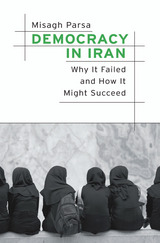
The Green Movement protests that erupted in Iran in 2009 amid allegations of election fraud shook the Islamic Republic to its core. For the first time in decades, the adoption of serious liberal reforms seemed possible. But the opportunity proved short-lived, leaving Iranian activists and intellectuals to debate whether any path to democracy remained open.
Offering a new framework for understanding democratization in developing countries governed by authoritarian regimes, Democracy in Iran is a penetrating, historically informed analysis of Iran’s current and future prospects for reform. Beginning with the Iranian Revolution of 1979, Misagh Parsa traces the evolution of Iran’s theocratic regime, examining the challenges the Islamic Republic has overcome as well as those that remain: inequalities in wealth and income, corruption and cronyism, and a “brain drain” of highly educated professionals eager to escape Iran’s repressive confines. The political fortunes of Iranian reformers seeking to address these problems have been uneven over a period that has seen hopes raised during a reformist administration, setbacks under Ahmadinejad, and the birth of the Green Movement. Although pro-democracy activists have made progress by fits and starts, they have few tangible reforms to show for their efforts.
In Parsa’s view, the outlook for Iranian democracy is stark. Gradual institutional reforms will not be sufficient for real change, nor can the government be reformed without fundamentally rethinking its commitment to the role of religion in politics and civic life. For Iran to democratize, the options are narrowing to a single path: another revolution.

Following World War II, the American Occupation created Western style democratic institutions in Japan and sought to develop a society and culture that would support a democratic political system. Now, after four decades, the successes and failures of Japanese democracy can be assessed. How equal are Japan’s citizens? To what extent are their views represented in the legislature? How does Japan handle dissent and protest? How stable is its democracy?
In closely related and readable essays, thirteen leading experts consider three main components of democracy in Japan - political, social, and economic. The editors’ introduction provides historical background, making this book accessible and valuable for students, the general reader interested in Japan, as well as the specialist.
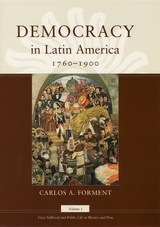
This first volume of Democracy in Latin America considers the development of democratic life in Mexico and Peru from independence to the late 1890s. Forment traces the emergence of hundreds of political, economic, and civic associations run by citizens in both nations and shows how these organizations became models of and for democracy in the face of dictatorship and immense economic hardship. His is the first book to show the presence in Latin America of civic democracy, something that gave men and women in that region an alternative to market- and state-centered forms of life.
In looking beneath institutions of government to uncover local and civil organizations in public life, Forment ultimately uncovers a tradition of edification and inculcation that shaped democratic practices in Latin America profoundly. This tradition, he reveals, was stronger in Mexico than in Peru, but its basic outlines were similar in both nations and included a unique form of what Forment calls Civic Catholicism in order to distinguish itself from civic republicanism, the dominant political model throughout the rest of the Western world.

Democracy in Mexico offers an important contribution to one of the more complex and multifaceted political processes of recent decades in Latin America: Mexico's democratization at the national and subnational levels. Topics include the quality of democracy, political participation, and insecurity.
The book is based on two surveys carried out throughout Mexico in 2009 and 2011. The result of this collaboration is one of the few existing studies on democratic processes in the Mexican states.
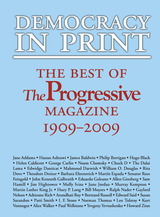
Readers will discover the vision of the magazine’s founder, Robert “Fighting Bob” La Follette, and his suffragist wife, Belle Case La Follette. They’ll find historic gems from the likes of Jane Addams, Carl Sandburg, Huey Long, and John Kenneth Galbraith, and profound essays by Theodore Dreiser, Barbara Ehrenreich, Noam Chomsky, Upton Sinclair, Arundhati Roy, James Baldwin, Edwidge Danticat, and Edward Said. The collection is leavened with humor from Kate Clinton, Will Durst, Michael Feldman, and Molly Ivins, and graced by poems from such writers as Mahmoud Darwish, Rita Dove, Martín Espada, Maxine Kumin, Adrienne Rich, and Sandra Cisneros. Fascinating interviews bring readers into conversations with prominent cultural figures, including Chuck D, the Dalai Lama, Allen Ginsberg, Amy Goodman, Harold Pinter, Patti Smith, Susan Sarandon, and Yevgeny Yevtushenko.
Eminently browsable, this book is for anyone concerned with American democracy, the global community, and the perils of the planet. With contributions by actors and Supreme Court justices, comedians and Nobel Prize-winners, Democracy in Print offers all readers nourishing food for thought.

The COVID-19 pandemic has demonstrated some of the strengths of our society, including the rapid development of vaccines. But the pandemic has also exposed its glaring weaknesses, such as the failure of our government to develop and quickly implement strategies for tracing and containing outbreaks as well as widespread public distrust of government prompted by often confusing and conflicting choices—to mask, or not to mask. Even worse is that over half a million deaths and the extensive economic devastation could have been avoided if the government had been prepared to undertake comprehensive, contextually-sensitive policies to stop the spread of the disease.
In Democracy in the Time of Coronavirus, leading political thinker Danielle Allen untangles the US government’s COVID-19 victories and failures to offer a plan for creating a more resilient democratic polity—one that can better respond to both the present pandemic and future crises. Looking to history, Allen also identifies the challenges faced by democracies in other times that required strong government action. In an analysis spanning from ancient Greece to the Reconstruction Amendments and the present day, Allen argues for the relative effectiveness of collaborative federalism over authoritarian compulsion and for the unifying power of a common cause. But for democracy to endure, we—as participatory citizens—must commit to that cause: a just and equal social contract and support for good governance.
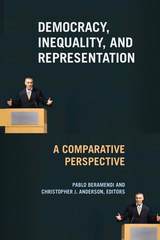

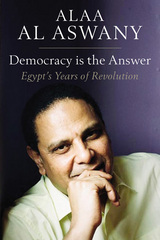
This book presents, for the first time in English, all of Al-Aswany’s columns from the period, a comprehensive account of the turmoil of the post-revolutionary years, and a portrait of a country and a people in flux. Each column is presented along with a context-setting introduction, as well as notes and a glossary, all designed to give non-Egyptian readers the background they need to understand the events and figures that Al-Aswany chronicles. The result is a definitive portrait of Egypt today—how it got here, and where it might be headed.

Until 1930, Argentina was one of the great hopes for stable democracy in Latin America. Argentines themselves believed in the destiny of their nation to become the leading Latin American country in wealth, power, and culture. But the revolution of 1930 unleashed the scourges of modern militarism and chronic instability in the land. Between 1930 and 1966, the Argentine armed forces, or factions of the armed forces, overthrew the government five times.
For several decades, militarism was the central problem in Argentine political life. In this study, Marvin Goldwert interprets the rise, growth, and development of militarism in Argentina from 1930 to 1966. The tortuous course of Argentine militarism is explained through an integrating hypothesis. The army is viewed as a “power factor,” torn by a permanent dichotomy of values, which rendered it incapable of bringing modernization to Argentina. Caught between conflicting drives for social order and modernization, the army was an ambivalent force for change. First frustrated by incompetent politicians (1916–1943), the army was later driven by Colonel Juan D. Perón into an uneasy alliance with labor (1943–1955). Peronism initially represented the means by which army officers could have their cake—nationalistic modernization—and still eat it in peace, with the masses organized in captive unions tied to an authoritarian state.
After 1955, when Perón was overthrown, a deeply divided army struggled to contain the remnants of its own dictatorial creation. In 1966, the army, dedicated to staunch anti-Peronism, again seized the state and revived the dream of reconciling social order and modernization through military rule.
Although militarism has been a central problem in Argentine political life, it is also the fever that suggests deeper maladies in the body politic. Marvin Goldwert seeks to relate developments in the military to the larger political, social, and economic developments in Argentine history. The army and its factions are viewed as integral parts of the whole political spectrum during the period under study.
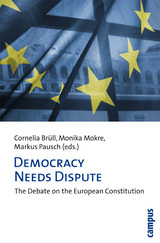
In 2005 hopes for closer European integration were dealt a potentially fatal blow when French and Dutch voters rejected the proposed new European Union constitution. Going beyond the instant analysis of journalists, which placed blame for the failed vote on the two nations’ internal politics, Democracy Needs Dispute examines a collection of media accounts of European policy debates to argue that the problem with the EU is its relative lack of vibrant political conflict. Democracy Needs Dispute offers both up-to-date analysis and a rich theoretical understanding of the problems facing further efforts at European integration.

For citizens seeking to take an active role in the affairs of their community—whether improving local schools, forcing clean-up of a polluted river, or weighing in on the debate over economic globalization — the challenge of activism can be daunting. Civic activists need to understand both the issues involved and how to take effective public action, often against enormous odds. The Democracy Owners’ Manual is a unique, hands-on guide for people who want to change public policy at the local, state, or national level. A combination of policy and advocacy basics, the book offers a clear presentation of the issues and debates activists are likely to encounter as well as a lucid, example-rich guide to effective strategies and actions.
Newcomers to advocacy work will find Jim Shultz’s book an invaluable treasure chest of ideas and stimulating stories to help them tackle the issues they care about. Veterans of public advocacy and activism will find the book to be a valuable source for fresh ideas and an indispensable tool for teaching and training others in the art of social activism. The book also uniquely lends itself for university courses in political science, public administration, social work, public health, environmental studies, and other disciplines that touch on public policy and political change.

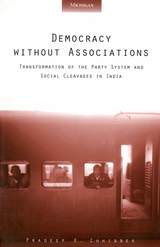
Democracy Without Associations will interest scholars and students of Indian politics, and party politics, as well as those interested in the impact of social divisions on the political system.
Pradeep K. Chhibber is Assistant Professor of Political Science and Associate Director, Center for South and Southeast Asian Studies, University of Michigan.
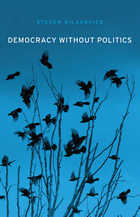
In Western democracies today, politics and politicians are held in contempt by the majority of citizens. Steven Bilakovics argues that this disdain of politics follows neither from the discontents of our liberal political system nor from the preoccupations of a consumer society. Rather, extending Tocqueville’s analysis of the modern democratic way of life, he traces the sources of political cynicism to democracy itself.
Democratic society’s defining openness—its promise of transcendent freedom and unlimited power—renders the everyday politics of argument and persuasion absurd by comparison. Persuasion is devalued relative to the norms of free-market competition and patriotic community, assertions of self-interest and self-expression take the place of arguing together, and political life is diminished by the absence of mediating talk. Bilakovics identifies this trend across the political landscape—in the clashing authenticities of the "culture war," the perennial pursuit of the political outsider to set things right again, the call for a postpartisan politics, rising demands on government alongside falling expectations of what government can do, and in a political rhetoric that is at once petty and hyperbolic. To reform democratic politics and ameliorate its pathologies, Bilakovics calls on us to overcome our anti-political prejudice and rethink robust democracy as the citizen's practice of persuading and being persuaded in turn.

Focusing on the U.S. Supreme Court, the presidency, and the U.S. Senate, Gibson reveals that how people assessed the election, the insurrection, and even the second Trump impeachment has little connection to their willingness to view American political institutions as legitimate. Instead, legitimacy is grounded in more general commitments to democratic values and support for the rule of law. On most issues of institutional legitimacy, those who denied the election results and supported the insurrection were not more likely to be alienated from political institutions and to consider them illegitimate.
Gibson also investigates whether Black people might have responded differently to the events of the 2020 election and its aftermath. He finds that in comparison to the White majority, Black Americans were less supportive of America’s democratic institutions and of democratic values, such as reverence for the rule of law, because they often have directly experienced unfair treatment by legal authorities. But he emphasizes that the actions of Trump and his followers are not the cause of those weaker commitments.
Democracy’s Destruction? offers rigorous analysis of the effect of the Trump insurrection on the state of U.S. democracy today. While cautioning that Trump and many Republicans may be devising schemes to subvert the next presidential election more effectively, the book attests to the remarkable endurance of American political institutions.
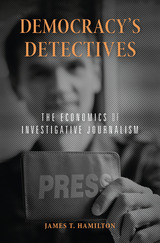
Winner of the Goldsmith Book Prize, Shorenstein Center on Media, Politics and Public Policy at the Harvard Kennedy School of Government
Winner of the Tankard Book Award, Association for Education in Journalism and Mass Communication
Winner of the Frank Luther Mott–Kappa Tau Alpha Journalism & Mass Communication Research Award
In democratic societies, investigative journalism holds government and private institutions accountable to the public. From firings and resignations to changes in budgets and laws, the impact of this reporting can be significant—but so too are the costs. As newspapers confront shrinking subscriptions and advertising revenue, who is footing the bill for journalists to carry out their essential work? Democracy’s Detectives puts investigative journalism under a magnifying glass to clarify the challenges and opportunities facing news organizations today.
“Hamilton’s book presents a thoughtful and detailed case for the indispensability of investigative journalism—and just at the time when we needed it. Now more than ever, reporters can play an essential role as society’s watchdogs, working to expose corruption, greed, and injustice of the years to come. For this reason, Democracy’s Detectives should be taken as both a call to arms and a bracing reminder, for readers and journalists alike, of the importance of the profession.”
—Anya Schiffrin, The Nation
“A highly original look at exactly what the subtitle promises…Has this topic ever been more important than this year?”
—Tyler Cowen, Marginal Revolution
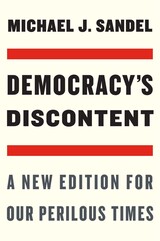
A renowned political philosopher updates his classic book on the American political tradition to address the perils democracy confronts today.
The 1990s were a heady time. The Cold War had ended, and America’s version of liberal capitalism seemed triumphant. And yet, amid the peace and prosperity, anxieties about the project of self-government could be glimpsed beneath the surface.
So argued Michael Sandel, in his influential and widely debated book Democracy’s Discontent, published in 1996. The market faith was eroding the common life. A rising sense of disempowerment was likely to provoke backlash, he wrote, from those who would “shore up borders, harden the distinction between insiders and outsiders, and promise a politics to ‘take back our culture and take back our country,’ to ‘restore our sovereignty’ with a vengeance.”
Now, a quarter century later, Sandel updates his classic work for an age when democracy’s discontent has hardened into a country divided against itself. In this new edition, he extends his account of America’s civic struggles from the 1990s to the present. He shows how Democrats and Republicans alike embraced a version of finance-driven globalization that created a society of winners and losers and fueled the toxic politics of our time.
In a work celebrated when first published as “a remarkable fusion of philosophical and historical scholarship” (Alan Brinkley), Sandel recalls moments in the American past when the country found ways to hold economic power to democratic account. To reinvigorate democracy, Sandel argues in a stirring new epilogue, we need to reconfigure the economy and empower citizens as participants in a shared public life.
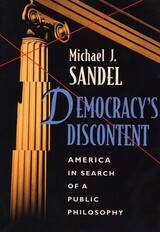
The defect, Sandel maintains, lies in the impoverished vision of citizenship and community shared by Democrats and Republicans alike. American politics has lost its civic voice, leaving both liberals and conservatives unable to inspire the sense of community and civic engagement that self-government requires.
In search of a public philosophy adequate to our time, Sandel ranges across the American political experience, recalling the arguments of Jefferson and Hamilton, Lincoln and Douglas, Holmes and Brandeis, FDR and Reagan. He relates epic debates over slavery and industrial capitalism to contemporary controversies over the welfare state, religion, abortion, gay rights, and hate speech. Democracy's Discontent provides a new interpretation of the American political and constitutional tradition that offers hope of rejuvenating our civic life.

David Campbell recounts compelling stories of the workarounds, sidesteps, informal agreements, and grantor–grantee negotiations that help policy initiatives succeed as intended. The settings include schools, human services departments, workforce development agencies, and community-based organizations. He explains why it is difficult, though necessary, to translate locally attuned implementation dynamics into accountability metrics for distant funders.
Drawing on 2,000 interviews, Democracy’s Hidden Heroes is the culmination of decades spent talking to people who must reconcile bureaucratic and community cultures. Campbell’s grounded approach and balanced perspective bring fresh insights to the analysis of policy implementation, public management, and results accountability, while offering both cautionary advice and a hopeful prognosis.
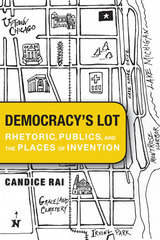
Candice Rai’s Democracy’s Lot is an incisive exploration of the limitations and possibilities of democratic discourse for resolving conflicts in urban communities. Rai roots her study of democratic politics and publics in a range of urban case studies focused on public art, community policing, and urban development. These studies examine the issues that erupted within an ethnically and economically diverse Chicago neighborhood over conflicting visions for a vacant lot called Wilson Yard. Tracing how residents with disparate agendas organized factions and deployed language, symbols, and other rhetorical devices in the struggle over Wilson Yard’s redevelopment and other contested public spaces, Rai demonstrates that rhetoric is not solely a tool of elite communicators, but rather a framework for understanding the agile communication strategies that are improvised in the rough-and-tumble work of democratic life.
Wilson Yard, a lot eight blocks north of Wrigley Field in Chicago’s gentrifying Uptown neighborhood, is a diverse enclave of residents enlivened by recent immigrants from Guatemala, Mexico, Vietnam, Ethiopia, and elsewhere. The neighborhood’s North Broadway Street witnesses a daily multilingual hubbub of people from a wide spectrum of income levels, religions, sexual identifications, and interest groups. When a fire left the lot vacant, this divided community projected on Wilson Yard disparate and conflicting aspirations, the resolution of which not only determined the fate of this particular urban space, but also revealed the lot of democracy itself as a process of complex problem-solving. Rai’s detailed study of one block in an iconic American city brings into vivid focus the remarkable challenges that beset democratic urban populations anywhere on the globe—and how rhetoric supplies a framework to understand and resolve those challenges.
Based on exhaustive field work, Rai uses rhetorical ethnography to study competing publics, citizenship, and rhetoric in action, exploring “rhetorical invention,” the discovery or development by individuals of the resources or methods of engaging with and persuading others. She builds a case for democratic processes and behaviors based not on reflexive idealism but rather on the hard work and practice of democracy, which must address apathy, passion, conflict, and ambivalence.
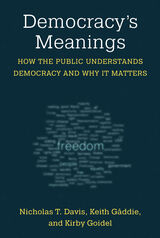
Democracy’s Meanings challenges conventional wisdom regarding how the public thinks about and evaluates democracy. Mining both political theory and more than 75 years of public opinion data, the book argues that Americans think about democracy in ways that go beyond voting or elected representation. Instead, citizens have rich and substantive views about the material conditions that democracy should produce, which draw from their beliefs about equality, fairness, and justice.
The authors construct a typology of views about democracy. Procedural views of democracy take a minimalistic quality. While voting and fair treatment are important to this vision of democracy, ideas about equality are mostly limited to civil liberties. In contrast, social views of democracy incorporate both civil and economic equality; according to people with these views, democracy ought to meet the basic social and material needs of citizens. Complementing these two groups are moderate and indifferent views about democracy. While moderate views sit somewhere in between procedural and social perspectives regarding the role of democracy in producing social and economic equality, indifferent views of democracy involve disaffection toward it. For a small group of apathetic citizens, democracy is an ambiguous and ill-defined concept.
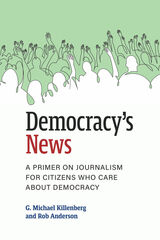
Since the Founding, America’s faith in a democratic republic has depended on citizens who could be trusted to be communicators. Vigorous talk about equality, rights, and collaboration fueled the revolution, the Declaration of Independence, and the Constitution with its amendments. In a republic, the people set the terms for their lives not individually, but in community. The genius of keeping it alive exists in how everyday citizens talk and listen, write and read, for a common good. Dialogue and deliberation—rather than an accumulation of individual preferences—sustains a republic, yet a diminished and scarred institution of journalism jeopardizes citizens’ access to shared and truthful information. A disturbing “what’s in it for me?” attitude has taken over many citizens, and a creeping, autocratic sense of dismissive accusation too often characterizes the political style of elected officials.
The basic fuel for democracy is the willingness of informed citizens to take each other seriously as they talk about political choices. Once we begin to clam up, build walls, and dismiss each other, we unravel the threads tying us to the Founders’ vision of a republic. A free press and free speech become meaningless if not supported by sustained listening to multiple positions. There are those who profit by dividing citizens into two camps: a comfortable “us” versus a scary “them.” They make their case with accusations and often with lies. They warp the very meaning of communication, hoping citizens never truly discover each other’s humanity. Democracy’s News discusses today’s problems of public communication in the context of history, law, and interpersonal life. News should not be something to dread, mistrust, or shun. Aided by reliable, factual journalism, citizens can develop a community-based knowledge to cope with social issues great and small. They come to treat neighbors and strangers as more than stereotypes or opponents. They become collaborators with whom to identify and sustain a working republic where news, citizenship, and public discourse merge.
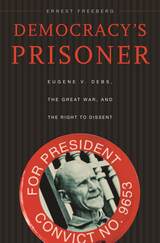
In 1920, socialist leader Eugene V. Debs ran for president while serving a ten-year jail term for speaking against America’s role in World War I. Though many called Debs a traitor, others praised him as a prisoner of conscience, a martyr to the cause of free speech. Nearly a million Americans agreed, voting for a man whom the government had branded an enemy to his country.
In a beautifully crafted narrative, Ernest Freeberg shows that the campaign to send Debs from an Atlanta jailhouse to the White House was part of a wider national debate over the right to free speech in wartime. Debs was one of thousands of Americans arrested for speaking his mind during the war, while government censors were silencing dozens of newspapers and magazines. When peace was restored, however, a nationwide protest was unleashed against the government’s repression, demanding amnesty for Debs and his fellow political prisoners. Led by a coalition of the country’s most important intellectuals, writers, and labor leaders, this protest not only liberated Debs, but also launched the American Civil Liberties Union and changed the course of free speech in wartime.
The Debs case illuminates our own struggle to define the boundaries of permissible dissent as we continue to balance the right of free speech with the demands of national security. In this memorable story of democracy on trial, Freeberg excavates an extraordinary episode in the history of one of America’s most prized ideals.

Given the massive demographic changes in the United States during the past few decades, understanding the place of immigrants in the public sphere has never been more critical. Democracy's Promise examines both the challenges and opportunities posed to American civic institutions by the presence of increasing numbers of immigrants. Author Janelle Wong argues that the low levels of political participation among contemporary immigrants are not due to apathy or preoccupation with their homeland, but to the inability of American political parties and advocacy organizations to mobilize immigrant voters. Wong's rich study of Chinese and Mexican immigrants in New York and Los Angeles complements traditional studies of political behavior and civic institutions while offering a nuanced examination of immigrants' political activity.
Democracy's Promise will appeal to a broad spectrum of social scientists and ethnic studies scholars who study or teach immigration, racial and ethnic politics, political participation, civic engagement, and American political institutions. In addition, it will appeal to community organizers and party activists who are interested in issues of race and ethnicity, immigration, political participation, and political mobilization.
Janelle Wong is Assistant Professor of Political Science and American Studies and Ethnicity at the University of Southern California.
--Jennifer L. Hochschild, Harvard University
"Wong draws on the Latino and Asian immigrant experience, with specific examples from the Chinese and Mexican communities of New York and Los Angeles, to show how the political parties have largely failed to organize these groups and why labor unions and immigrant advocacy organizations have stepped in to take their place. Far from 'disuniting' America, she clearly shows that bringing these groups into the political fray is central to the project of renewing American democracy."
--John Mollenkopf, CUNY Graduate Center
"A scathing critique of the role of parties in the mobilization of new immigrants and an invaluable analysis of alternative pathways of mobilization through community organizations."
--Michael Jones-Correa, Cornell University
"By employing multiple empirical methods, including in-depth interviews and sophisticated survey analyses, Janelle Wong provides a compelling account of the political activities and allegiances of America's Asian and Latino immigrants that challenges much conventional wisdom. Often the political parties are failing to reach out to these groups, and often immigrants remain concerned about their home countries; but they are nonetheless increasingly active in American politics, in ways that may do much to shape the course of American political development in the 21st century. Democracy's Promise is a major contribution to our understanding of this crucial dimension of American politics."
--Rogers M. Smith, University of Pennsylvania
"Democracy's Promise challenges political parties to reexamine their priorities for mobilizing new voters, and identifies the critical role civic institutions play in invigorating participation among immigrant citizens. Wong's analysis is at once precise and expansive; illuminating the contours of Latino and Asian American political incorporation and provoking thoughtful debate on inclusion in democratic theory."
--Jane Junn, Rutgers University
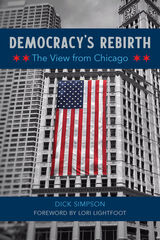
With a foreword by Mayor Lori E. Lightfoot.
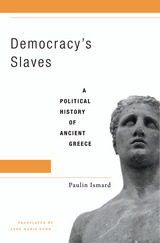
The ancient Greek statesman is a familiar figure in the Western political tradition. Less well known is the administrator who ran the state but who was himself a slave. Challenging the modern belief that democracy and bondage are incompatible, Paulin Ismard directs our attention to the cradle of Western democracy, ancient Athens, where the functioning of civic government depended crucially on highly skilled experts who were literally public servants—slaves owned by the city-state rather than by private citizens.
Known as dēmosioi, these public slaves filled a variety of important roles in Athenian society. They were court clerks, archivists, administrators, accountants, and policemen. Many possessed knowledge and skills beyond the attainments of average citizens, and they enjoyed privileges, such as the right to own property, that were denied to private slaves. In effect, dēmosioi were Western civilization’s first civil servants—though they carried out their duties in a condition of bound servitude.
Ismard detects a radical split between politics and administrative government at the heart of Athenian democracy. The city-state’s managerial caste freed citizens from the day-to-day responsibilities of running the state. By the same token, these public servants were unable to participate in the democratic process because they lacked the rights of full citizenship. By rendering the state’s administrators politically invisible, Athens warded off the specter of a government capable of turning against the citizens’ will. In a real sense, Ismard shows, Athenian citizens put the success of their democratic experiment in the hands of slaves.
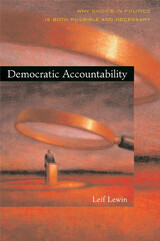
It is common for political leaders to claim they have no control over bad outcomes. Indeed, they often cite the arguments of political theorists and public intellectuals as to why: history rushes onward oblivious of human will; force and violence overcome political aims; globalization undermines the actions of national leaders; the bureaucracy sabotages their intentions; bad outcomes are often the unintended result of actions.
In Democratic Accountability, Leif Lewin examines these reasons and argues that they are unconvincing. He makes his case by describing and analyzing counterexamples in seven cases, including the prevention of a communist takeover in Europe after World War II, the European Union's preventing another European war, and Margaret Thatcher's taming of the bureaucracy in Britain. In a staunch defense of the possibility for meaningful and profound democratic decision making, Lewin finds that, in fact, not only do political leaders exert a good measure of control and therefore can be assigned responsibility, but the meaning of the functioning democracy is that the people hold their leaders accountable.
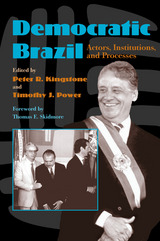
After 21 years of military rule, Brazil returned to democracy in 1985. Over the past decade and a half, Brazilians in the Nova República (New Republic) have struggled with a range of diverse challenges that have tested the durability and quality of the young democracy. How well have they succeeded? To what extent can we say that Brazilian democracy has consolidated? What actors, institutions, and processes have emerged as most salient over the past 15 years? Although Brazil is Latin America's largest country, the world's third largest democracy, and a country with a population and GNP larger than Yeltsin's Russia, more than a decade has passed since the last collaborative effort to examine regime change in Brazil, and no work in English has yet provided a comprehensive appraisal of Brazilian democracy in the period since 1985.
Democratic Brazil analyzes Brazilian democracy in a comprehensive, systematic fashion, covering the full period of the New Republic from Presidents Sarney to Cardoso. Democratic Brazil brings together twelve top scholars, the “next generation of Brazilianists,” with wide-ranging specialties including institutional analysis, state autonomy, federalism and decentralization, economic management and business-state relations, the military, the Catholic Church and the new religious pluralism, social movements, the left, regional integration, demographic change, and human rights and the rule of law. Each chapter focuses on a crucial process or actor in the New Republic, with emphasis on its relationship to democratic consolidation. The volume also contains a comprehensive bibliography on Brazilian politics and society since 1985. Prominent Brazilian historian Thomas Skidmore has contributed a foreword to the volume.
Democratic Brazil speaks to a wide audience, including Brazilianists, Latin Americanists generally, students of comparative democratization, as well as specialists within the various thematic subfields represented by the contributors. Written in a clear, accessible style, the book is ideally suited for use in upper-level undergraduate courses and graduate seminars on Latin American politics and development.
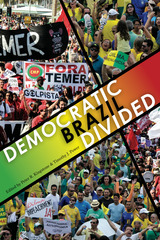
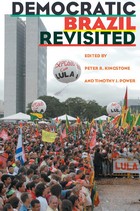
The 2002 election of Lula da Silva and his Worker's Party promised a radical shift toward progressive reform, transparency, and accountability, opposing the earlier centrist and market-oriented policies of the Cardoso government. But despite the popular support reflected in his 2006 reelection, many observers claim that Lula and his party have fallen short of their platform promises. They have moved to the center in their policies, done little to change the elitist political culture of the past, and have engaged in “politics as usual” in executive-legislative relations, leading to allegations of corruption.
Under these conditions, democracy in Brazil remains an enigma. Progress in some areas is offset by stagnation and regression in others: while the country has seen renewed economic growth and significant progress in areas of health care and education, the gap between rich and poor remains vast. Rampant crime, racial inequality, and a pandemic lack of personal security taint the vision of progress. These dilemmas make Brazil a particularly striking case for those interested in Latin America and democratization in general.
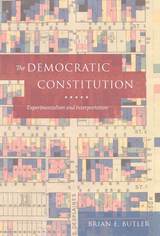
Butler offers an alternative democratic conception of constitutional law, “democratic experimentalism,” and applies it in a thorough reconstruction of Supreme Court cases across the centuries, such as Brown v. Board of Education, Citizens United v. Federal Election Commission, Lucas v. South Carolina Coastal Council, and Lochner v. New York. In contrast to the traditional tools and conceptions of legal analysis that see the law as a formally unique and separate type of practice, democratic experimentalism combines democratic aims and experimental practice. Butler also suggests other directions jurisprudential roles could take: for example, adjudication could be performed by primary stakeholders with better information. Ultimately, Butler argues persuasively for a move away from the current absolute centrality of courts toward a system of justice that emphasizes local rule and democratic choice.
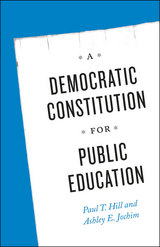
Most reformers focus on who should control education, but Hill and Jochim show that who governs is less important than determining what powers they have. They propose a Civic Education Council—a democratic body subject to checks and balances that would define the boundaries of its purview as well as each school’s particular freedoms. They show how such a system would prevent regulations meant to satisfy special interests and shift the focus to the real task at hand: improving school performance. Laying out the implications of such a system for parents, students, teachers, unions, state and federal governments, and courts, they offer a vision of educational governance that stays true to—and draws on the strengths of—one of the greatest democratic tools we have ever created.
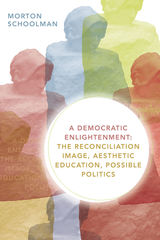

"Observers have long marveled at the spread of ideas and policies from state to state in American democracy. But why and how do politicians, professionals, and citizens in one state take inspiration from national policy debates and imitate, resist, and rework legislative models from other states? For the first time in this important new book, Andrew Karch analyzes in depth the process of policy 'diffusion' across the states, offering a nuanced and powerful framework to explain one of the most important and recurrent features of U.S. politics."
---Theda Skocpol, Victor S. Thomas Professor of Government and Sociology, Harvard University
"Karch does two things with remarkable skill. First, he makes sense of the copious literature on policy diffusion and extends that literature in a very fruitful way. Second, he conducts the most thorough and methodologically sound empirical study of policy diffusion to date, using both qualitative and quantitative analysis. This book is so well written and thoughtful that it will likely stimulate a whole new wave of study of state policy and its diffusion."
---Chris Mooney, editor of State Politics and Policy Quarterly
"Democratic Laboratories goes beyond standard 'diffusion of innovation' approaches to analyze the complex interaction of interstate and intrastate political forces that shapes policy change. The book is a major contribution to the study of American federalism---and a very good read."
---Kent Weaver, Brookings Institution
---Virginia Gray, University of North Carolina, Chapel Hill
"Democratic Laboratories is the seminal work on policy diffusion among the American states. Rigorously designed and well written, it is the new starting place for anyone interested in this important topic. The findings are copious and loaded with insights into the future of this valuable research."
---Harrell Rodgers, Professor and Chair, Department of Political Science, University of Houston
Andrew Karch is Assistant Professor of Government at the University of Texas at Austin.

The Democratic Peace Thesis holds that democracies rarely make war on other democracies. Political scientists have advanced numerous theories attempting to identify precisely which elements of democracy promote this mutual peace, often hoping that Democratic Peace could be the final and ultimate antidote to war. However, as the theories were taken up by political figures, the immediate outcomes were war and the perpetuation of hostilities.
Political theorist Piki Ish-Shalom sketches the origins and early academic development of the Democratic Peace Thesis. He then focuses on the ways in which various Democratic Peace Theories were used by Bill Clinton and George W. Bush both to shape and to justify U.S. foreign policy, particularly the U.S. stance on the Israeli-Palestinian situation and the War in Iraq. In the conclusion, Ish-Shalom boldly confronts the question of how much responsibility theoreticians must bear for the political uses—and misuses—of their ideas.
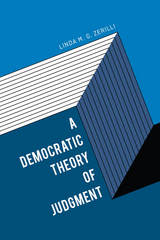
Zerilli deftly outlines the limitations of existing debates, both those that concern themselves with the impossibility of judging across cultures and those that try to find transcendental, rational values to anchor judgment. Looking at Kant through the lens of Arendt, Zerilli develops the notion of a public conception of truth, and from there she explores relativism, historicism, and universalism as they shape feminist approaches to judgment. Following Arendt even further, Zerilli arrives at a hopeful new pathway—seeing the collapse of philosophical criteria for judgment not as a problem but a way to practice judgment anew as a world-building activity of democratic citizens. The result is an astonishing theoretical argument that travels through—and goes beyond—some of the most important political thought of the modern period.
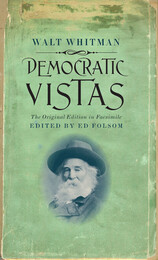
Written in the aftermath of the American Civil War during the ferment of national Reconstruction, Walt Whitman’s Democratic Vistas remains one of the most penetrating analyses of democracy ever written. Diagnosing democracy’s failures as well as laying out its vast possibilities, Whitman offers an unflinching assessment of the ongoing social experiment known as the United States. Now available for the first time in a facsimile of the original 1870–1871 edition, with an introduction and annotations by noted Whitman scholar Ed Folsom that illuminate the essay’s historical and cultural contexts, this searing analysis of American culture offers readers today the opportunity to argue with Whitman over the nature of democracy and the future of the nation.
Living in Washington, D.C., where Congress granted male African Americans the right to vote nearly five years before the fifteenth amendment extended that right across the nation, and working for the office charged with enforcing the new civil rights amendments to the Constitution, Whitman was at the volatile center of his nation’s massive attempt to reconstruct and redefine itself after the tumultuous years of civil war. In the enduring cultural document that Democratic Vistas has become, the great poet of democracy analyzes the role that literature plays in the development of a culture, the inevitable tensions between the “democratic individual” and the “democratic nationality,” and the corrosive effects of materialism on the democratic spirit.
His own conflicting racial biases notwithstanding, Whitman in Democratic Vistas offers his most eloquent and extended articulation of the beckoning American democratic future. At a time when the nation has elected a president whom Whitman could never have imagined, his controversial and provocativebook is a timely reminder of those occasions when we experience the expansion of America’s democratic dream.

When democracy was introduced to Nigeria in 1999, one third of its federal states declared that they would be governed by sharia, or Islamic law. In Democratization and Islamic Law, Johannes Harnischfeger argues that such a break with secular constitutional traditions in a multi-religious country can have disastrous consequences. The efforts by Islamic politicians to assert their own religious laws, Harnischfeger contends, have driven Muslims and Christians to confrontation. This book is an essential contribution to debates surrounding the increasingly fraught relationship between religion and politics.
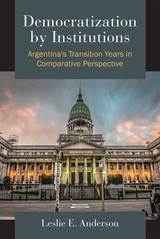
As Anderson astutely observes, the American founders debated the merits of the institutions they were creating. Examining how, and how well, Argentina’s American-style institutional structure functions, she considers the advantages and risks of the separation of powers, checks and balances, legislative policymaking, and strong presidential power. During the democratic transition, the Argentinian state has used institutions to address immediate policy challenges in ways responsive to citizens and thereby to provide a supportive environment in which social capital can develop.
By highlighting the role that institutions can play in leading a nation out of authoritarianism, even when social capital is low, Anderson begins a new conversation about the possibilities of democratization. Democratization by Institutions has much to say not only to Latin Americanists and scholars of democratization but also to those interested in the U.S. constitutional structure and its application in other parts of the world.

Rather, Scandinavia’s peaceful process of democratization owed itself to the development of a penetrative bureaucracy in the early modern period and the activism of cooperative associations, first of farmers in the early nineteenth century and then of industrialized workers in the late nineteenth and early twentieth centuries. Thanks to the gradual, relatively consensual adoption of political reforms and social norms, the history of “Nordic democratic exceptionalism” today helps account for the ongoing stability of the Scandinavian countries.
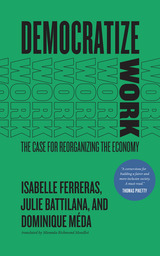
What happens to a society—and a planet—when capitalism outgrows democracy? The tensions between democracy and capitalism are longstanding, and they have been laid bare by the social effects of COVID-19. The narrative of “essential workers” has provided thin cover for the fact that society’s lowest paid and least empowered continue to work risky jobs that keep our capitalism humming. Democracy has been subjugated by the demands of capitalism. For many, work has become unfair.
In Democratize Work, essays from a dozen social scientists—all women—articulate the perils and frustrations of our collective moment, while also framing the current crisis as an opportunity for renewal and transformation. Amid mounting inequalities tied to race, gender, and class—and with huge implications for the ecological fate of the planet—the authors detail how adjustments in how we organize work can lead to sweeping reconciliation. By treating workers as citizens, treating work as something other than an asset, and treating the planet as something to be cared for, a better way is attainable. Building on cross-disciplinary research, Democratize Work is both a rallying cry and an architecture for a sustainable economy that fits the democratic project of our societies.
Contributors include Alyssa Battistoni (Barnard College of Columbia University), Adelle Blackett (McGill University), Julia Cagé (Sciences Po), Neera Chandhoke (University of Delhi), Lisa Herzog (University of Groningen), Imge Kaya Sabanci (IE Business School), Sara Lafuente (European Trade Union Institute), Hélène Landemore (Yale University), Flávia Máximo (Universidade Federal de Ouro Preto, Brazil), and Pavlina R. Tcherneva (Levy Economics Institute of Bard College).

In a groundbreaking study, Marybeth Peterson Ulrich explores the attitudes of the leaders of the armed forces in Russia and the Czech Republic toward the new democratic governments and suggests ways in which we might encourage the development of politically neutral militaries in these states. Building on the work of Samuel Huntington and others on the relationship between the military and the state, the author suggests that norms of military professionalism must change if the armies in countries making a transition from communist rule are to become strong supporters of the democratic state. The Czech Republic and Russia are interesting cases, because they have had very different experiences in the transition; they have different geopolitical goals; and they experienced different military-civilian relationships during the Soviet period. The author also explores American and NATO programs to promote democratization in these militaries and suggests changes in the programs.
Marybeth Peterson Ulrich is Associate Professor of Government, U.S. Army War College.

Winner, Outstanding Book Award, NACCS Tejas Foco Award for Non-Fiction, National Association for Chicana and Chicano Studies Tejas, 2015
By the beginning of the twenty-first century, Texas led the nation in the number of Latino officeholders, despite the state’s violent history of racial conflict. Exploring this and other seemingly contradictory realities of Texas’s political landscape since World War II, Democratizing Texas Politics captures powerful, interrelated forces that drive intriguing legislative dynamics. These factors include the long history of Mexican American activism; population growth among Mexican American citizens of voting age; increased participation among women and minorities at state and national levels in the Democratic Party, beginning in the 1960s; the emergence of the Republican Party as a viable alternative for Southern conservatives; civil rights legislation; and the transition to a more representative two-party system thanks to liberal coalitions.
Culling extensive archival research, including party records and those of both Latino activists and Anglo elected officials, as well as numerous interviews with leading figures and collected letters of some of Texas’s most prominent voices, Benjamin Márquez traces the slow and difficult departure from a racially uniform political class to a diverse one. As Texas transitioned to a more representative two-party system, the threat of racial tension and political exclusion spurred Mexican Americans to launch remarkably successful movements to ensure their incorporation. The resulting success and dilemmas of racially based electoral mobilization, embodied in pivotal leaders such as Henry B. Gonzalez and Tony Sanchez, is vividly explored in Democratizing Texas Politics.
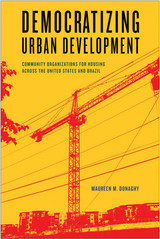
Rising housing costs put secure and decent housing in central urban neighborhoods in peril. How do civil society organizations (CSOs) effectively demand accountability from the state to address the needs of low-income residents? In her groundbreaking book, Democratizing Urban Development, Maureen Donaghy charts the constraints and potential opportunities facing these community organizations. She assesses the various strategies CSOs engage to influence officials and ensure access to affordable housing through policies, programs, and institutions.
Democratizing Urban Development presents efforts by CSOs in four cities across the hemispheric divide: Rio de Janeiro, São Paulo, Washington, DC, and Atlanta. Donaghy studies the impact and outcomes that ensue from these efforts, noting that CSOs must sometimes shift their own ideology or adapt to the political environment in which they operate to ensure access to housing and support the goals of an inclusive city.

Interlacing humor into his ongoing narrative, Robert Allen Rutland provides in The Democrats a readable, balanced account of how the Democratic party was founded, evolved, nearly died, and came back in the twentieth century, flourishing as a political melting pot despite numerous setbacks. This updated version of Rutland's much-heralded The Democrats: From Jefferson to Carter provides new insight into the long hiatus in the Democrats' presence in the White House between Carter and Clinton. In additon to analyzing Carter's successes and failures as president, Rutland also examines the forces that went into the Democratic defeats and Republican victories in 1980, 1984, and 1988, concluding with the election of another Jeffersonian Democrat, William Jefferson Clinton. The book ends with an examination of the dramatic results of the 1994 congressional elections that began to alert President Clinton to the challenge he would face in winning reelection in 1996.
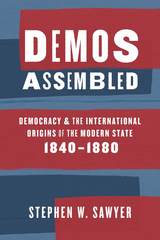
Previous studies have covered in great detail how the modern state slowly emerged from the early Renaissance through the seventeenth century, but we know relatively little about the next great act: the birth and transformation of the modern democratic state. And in an era where our democratic institutions are rife with conflict, it’s more important now than ever to understand how our institutions came into being.
Stephen W. Sawyer’s Demos Assembled provides us with a fresh, transatlantic understanding of that political order’s genesis. While the French influence on American political development is well understood, Sawyer sheds new light on the subsequent reciprocal influence that American thinkers and politicians had on the establishment of post-revolutionary regimes in France. He argues that the emergence of the stable Third Republic (1870–1940), which is typically said to have been driven by idiosyncratic internal factors, was in fact a deeply transnational, dynamic phenomenon. Sawyer’s findings reach beyond their historical moment, speaking broadly to conceptions of state formation: how contingent claims to authority, whether grounded in violence or appeals to reason and common cause, take form as stateness.
READERS
Browse our collection.
PUBLISHERS
See BiblioVault's publisher services.
STUDENT SERVICES
Files for college accessibility offices.
UChicago Accessibility Resources
home | accessibility | search | about | contact us
BiblioVault ® 2001 - 2024
The University of Chicago Press









